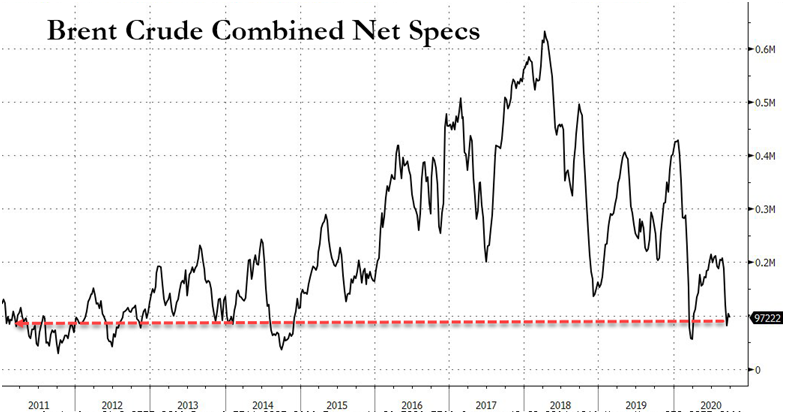

20.10.2020 – Special Report. Soon they will probably make the pumps run slower again: Oil producers need higher prices because the state coffers have dried up. In addition, demand is still faltering because the global economy is still stalling due to corona. The question is whether OPEC+ should increase production in this situation. For the first time since the big oil crash in April, there were talks between Moscow and Riyadh. The reaction on the oil market should not be long in coming.
Saudis and Russians are talking again
The important meeting on funding quotas is not scheduled until the beginning of December. But the current online meeting of the Joint Ministerial Monitoring Committee of the oil cartel should already set the course for the future. Especially since, according to Blomberg, Russian President Vladimir Putin and Saudi Crown Prince Mohammed Bin Salman have just spoken on the phone twice – since the great price war in spring, there had been an icy silence. On Saturday, both sides declared that they were prepared to cooperate closely to keep the global energy market stable. A clear warning to quota breakers in OPEC, such as the United Arab Emirates, who have barely reduced production.
Empty state coffers
Currently, the oil price is stuck at around 40 dollars, and Libya is likely to bring new oil onto the market soon. Now, of all times, when most oil exporters urgently need higher prices because government spending has risen in the wake of Corona. Many producers are living off their reserves – according to the financial blog ZeroHedge, only Russia, Qatar and Mexico can fiscally cope with the current prices. Oilprice.com pointed out that Bahrain, Dubai and Abu Dhabi have issued government bonds for the first time in years. And Saudi Arabia has also ramped up its bond issuance.
Hope for an increase in demand
Oil producers are therefore under pressure to reconsider the planned easing of production cuts. The limit was last raised by 2 million barrels per day, and in January another 1.9 million barrels are actually to be added. OPEC Secretary General Mohammad Barkindo admittedly judged last Thursday that current demand is anaemic. After all, the official had previously said that the worst was over. And in his annual World Oil Outlook, the cartel had looked positively at the end of the year.
Major players in the market also warned against increasing supply, including Mercuria Energy Group and JPMorgan Chase. Especially as there were bullish fundamental signals that should not be stifled by an increase in supply: The demand for paraffin will remain weak for years to come due to the aviation crisis. But China and India are preparing for new purchases of crude oil.

Speculators in the sights
There is another interesting aspect for oil bulls. Saudi Energy Minister Abdulaziz bin Salman had already warned the short sellers in September. There could be a change in production policy. In concrete terms, he said: “We will never leave this market unattended. I want the guys in the trading floors to be as jumpy as possible. I’m going to make sure whoever gambles on this market will be ouching like hell. ZeroHedge commented that the combined net exposure to Brent contracts is lower than it has been for a long time. This leaves a lot of room for demand and price jumps upwards. See graph above.
Our conclusion from this mixed situation: While Covid-19 is currently continuing to curb demand for oil, the important players apparently believe in a recovery of the market. And the hoped-for rising prices will require many suppliers to restructure the national budget. Moreover, Russia and Saudi Arabia now seem to be acting together – and they seem to have their eyes on the usual quota cheats. Moreover, since the Saudis are targeting the speculators – and since they apparently fear that oil prices will plunge into the negative as they did in the spring – we have a number of long factors.
But: a failure of the quota negotiations or even a new outburst of anger by the Saudis and the ramping up of the pumps as in spring could of course immediately reverse the trend. We wish you successful trades – and keep an eye on the matter for you.
Important Notes on This Publication:
The content of this publication is for general information purposes only. In this context, it is neither an individual investment recommendation or advice nor an offer to purchase or sell securities or other financial products. The content in question and all the information contained therein do not in any way replace individual investor- or investment-oriented advice. No reliable forecast or indication for the future is possible with respect to any presentation or information on the present or past performance of the relevant underlying assets. All information and data presented in this publication are based on reliable sources. However, Bernstein Bank does not guarantee that the information and data contained in this publication is up-to-date, correct and complete. Securities traded on the financial markets are subject to price fluctuations. A contract for difference (CFD) is also a financial instrument with leverage effect. Against this backdrop, CFD trading involves a high risk up to the point of total loss and may not be suitable for all investors. Therefore, make sure that you have fully understood all the correlating risks. If necessary, ask for independent advice.
